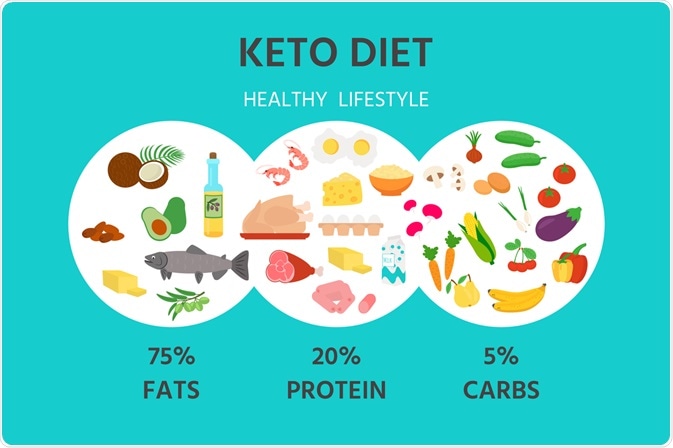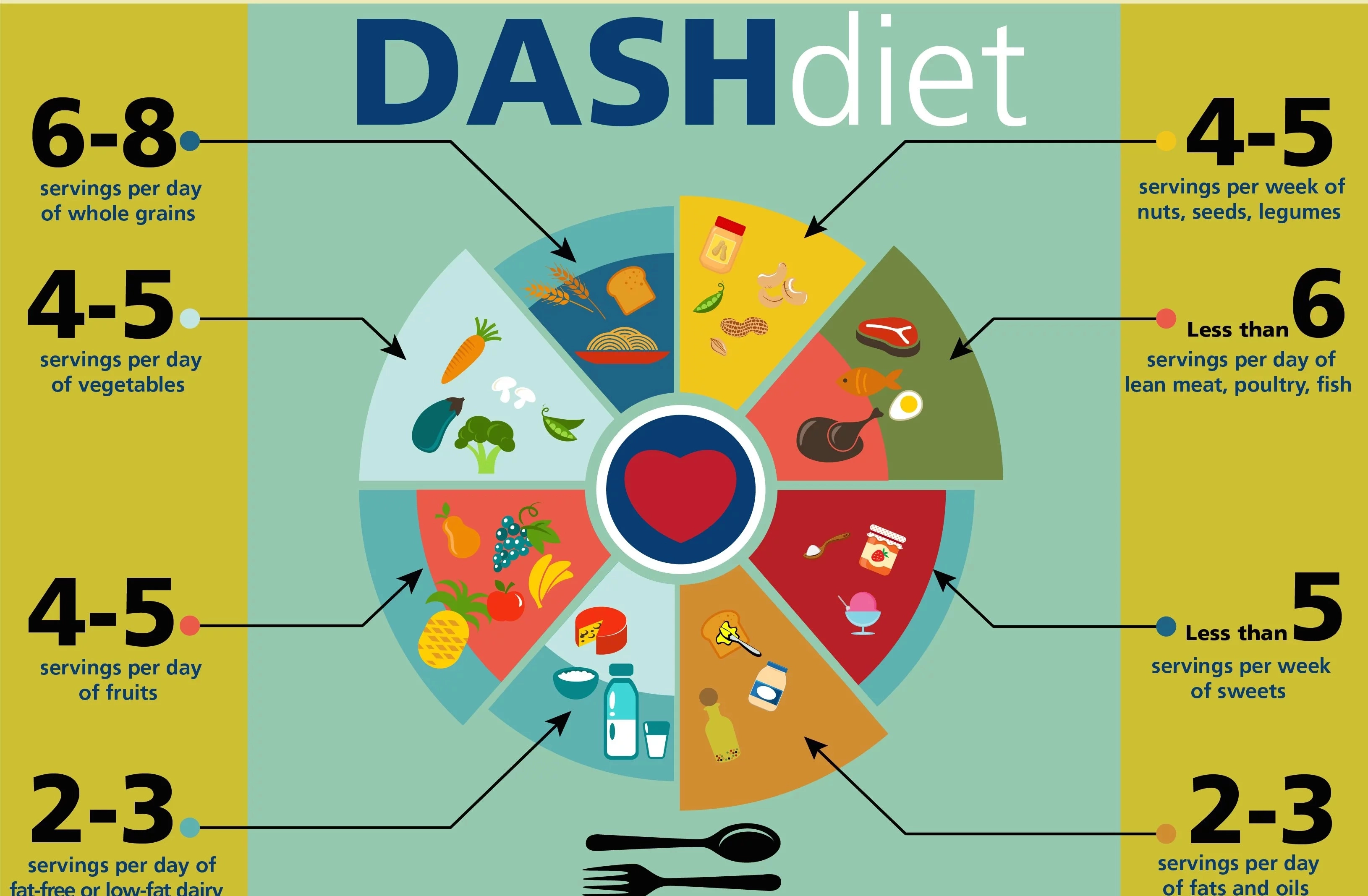Choosing the right diet plan for your body is a highly personal and important decision that can significantly impact your health, energy, mood, and overall quality of life. With so many diet plans available—from ketogenic to Mediterranean, vegan to paleo—it’s easy to feel overwhelmed by the sheer variety of options and conflicting advice. How do you know which diet plan is truly best suited for your unique body, lifestyle, and health goals?
This comprehensive guide will walk you through the essential factors to consider when choosing a diet plan. Understanding your body’s unique needs, such as metabolism, activity level, medical conditions, and food preferences, is crucial to selecting a diet plan that supports your health and is sustainable over time. We will explore how different diet plans work, what they emphasize, and who they are best suited for, helping you make an informed choice rather than following trends or quick fixes.
Moreover, adopting a new diet plan is not just about what you eat—it’s about creating healthy habits that last. We’ll provide practical tips for evaluating any diet plan, ensuring it fits your lifestyle, and maintaining balance to avoid common pitfalls such as nutrient deficiencies or burnout. Whether you want to lose weight, manage a chronic condition, or simply improve your overall well-being, choosing the right diet plan can empower you to reach your goals with confidence.
By the end of this guide, you’ll be equipped with the knowledge to select a diet plan that aligns with your body’s needs and supports a healthier, happier you. Remember, the best diet plan is one that you can enjoy, sustain, and thrive on every day.
Key Takeaways
- Every body is unique; consider metabolism, health conditions, and lifestyle when choosing a diet.
- Set clear goals and be realistic about what your diet can achieve.
- Food preferences and sustainability are critical to maintaining a diet plan long-term.
- Experiment and adjust your diet based on how your body responds.
- Combining diet with exercise, sleep, and stress management maximizes health benefits.
- Seek professional guidance for personalized recommendations.
- Consistency and balance are more important than strict adherence or perfection.
Understanding Your Body’s Unique Needs

Choosing the right diet plan starts with a deep understanding of your body’s unique characteristics and requirements. Every individual’s physiology, metabolism, and lifestyle play a crucial role in determining how food is digested, metabolized, and utilized for energy and repair. Without carefully considering these factors, you risk adopting a diet plan that may be ineffective or even harmful to your health. Selecting a diet plan without matching it to your body’s needs can lead to frustration, poor results, or nutrient imbalances.
When evaluating any diet plan, it’s essential to assess how well it aligns with your metabolic rate, activity levels, food sensitivities, and existing medical conditions. A successful diet plan is one that fits not only your health goals but also your daily routines and personal preferences. By understanding your body first, you can narrow down the vast array of diet plans to those that truly support your well-being and long-term sustainability.
Let’s dive deeper into these key factors so you can confidently choose the diet plan that works best for your body and lifestyle.
Metabolic Type and Energy Needs
Your metabolism is essentially the rate at which your body converts the food you eat into usable energy. This metabolic rate varies widely among individuals and is influenced by genetics, muscle mass, age, and hormonal function.
- Fast Metabolizers: Some people naturally burn calories quickly. They may find it easier to maintain or lose weight, but often require a higher caloric intake to sustain energy levels, especially if they are active. A diet for fast metabolizers might include frequent, balanced meals rich in carbohydrates for quick energy, along with sufficient proteins and fats.
- Slow Metabolizers: Others burn calories more slowly, which can make weight management more challenging. Slow metabolisms may store excess calories as fat if food intake isn’t moderated. For these individuals, diets lower in refined carbs and higher in protein and healthy fats might help improve metabolic efficiency and support weight control.
Why It Matters: Understanding your metabolic type helps tailor your macronutrient distribution (carbs, fats, proteins) and calorie intake. For example, a high-carb diet may energize a fast metabolizer but could cause fat gain in a slow metabolizer.
Food Sensitivities and Allergies
Not all foods affect everyone equally. Food sensitivities and allergies can cause a range of symptoms that interfere with your well-being.
- Food Allergies: These are immune system reactions to specific foods (e.g., nuts, shellfish, dairy). Allergies can cause severe symptoms such as hives, swelling, or anaphylaxis and require strict avoidance of triggering foods.
- Food Sensitivities and Intolerances: These may cause digestive symptoms like bloating, gas, diarrhea, or headaches but are less severe than allergies. Common intolerances include lactose (dairy) and gluten (wheat).
Why It Matters: Incorporating foods that cause adverse reactions will not only make you feel unwell but can lead to inflammation and chronic health issues. Identifying and eliminating these foods is essential for a diet that truly supports your health.
Medical Conditio
Chronic medical conditions demand special dietary considerations to manage symptoms and reduce risks of complications.
- Diabetes: Diets low in simple sugars and refined carbohydrates, such as low-carb or Mediterranean diets, can help regulate blood glucose levels.
- Hypertension (High Blood Pressure): The DASH diet, which limits sodium and emphasizes potassium-rich fruits and vegetables, is often recommended.
- Thyroid Disorders: Both hypothyroidism and hyperthyroidism impact metabolism and energy. Adequate iodine, selenium, and avoiding goitrogens (in some cases) can be important dietary factors.
- Autoimmune Diseases: Diets reducing inflammation—often through elimination of processed foods, gluten, or dairy—may ease symptoms.
Why It Matters: Your diet can be a powerful tool in managing or improving health conditions. Ignoring these needs can worsen symptoms or interfere with medications.
Activity Level and Lifestyle

How active you are influences your calorie and nutrient needs.
- Sedentary Lifestyle: Individuals with desk jobs or limited physical activity require fewer calories to maintain weight. Overconsumption without corresponding energy expenditure can lead to fat gain.
- Moderate Activity: Those engaging in regular exercise or manual work need more energy, particularly from carbohydrates and protein, to fuel workouts and aid recovery.
- Athletes/High-Performance Individuals: These individuals require higher calories with precise nutrient timing. Protein supports muscle repair; carbs replenish glycogen stores; fats provide sustained energy.
Why It Matters: Aligning your diet with your activity level ensures you have adequate fuel without overfeeding or underfeeding your body. Eating too little or too much relative to activity can impair performance and health.
Personal Preferences and Cultural Influences
Sustainability is key to any diet’s success. Personal preferences, cultural background, and ethical beliefs heavily influence what you will realistically eat day after day.
- Food Preferences: If you dislike certain foods or flavors, forcing yourself to eat them often leads to frustration and poor adherence.
- Cultural Practices: Traditional cuisines shape what foods are familiar and accessible to you. Incorporating cultural foods into your diet plan can enhance enjoyment and connection.
- Ethical Beliefs: Vegetarianism, veganism, or religious dietary restrictions require specific nutrient planning to avoid deficiencies.
- Cooking Skills and Resources: Time, kitchen equipment, and cooking knowledge affect your ability to prepare meals, which influences diet adherence.
Why It Matters: A diet plan that respects your preferences and culture is easier to maintain long term. Rigid diets that conflict with your tastes or lifestyle often fail.
Popular Diet Plans and Their Suitability
Selecting the right diet plan often involves exploring the many dietary approaches available today and understanding how each aligns with your body’s needs, goals, and lifestyle. While there is no one-size-fits-all diet, many popular plans offer distinct principles and benefits that might suit different individuals. Below is a detailed look at some of the most widely followed diet plans, what they emphasize, who they might be best suited for, and the potential benefits they provide.
Mediterranean Diet
Core Principles:
The Mediterranean diet draws inspiration from the traditional eating habits of countries bordering the Mediterranean Sea. It focuses on a high intake of plant-based foods such as fruits, vegetables, whole grains, legumes, nuts, and seeds. Healthy fats, primarily from extra-virgin olive oil, are central. Moderate amounts of fish and poultry provide protein, while red meat and sweets are consumed sparingly.
Best For:
This diet is highly flexible and suitable for nearly all ages and activity levels. It’s ideal for people who want a balanced, heart-healthy diet that is enjoyable and sustainable over the long term.
Benefits:
- Cardiovascular Health: The Mediterranean diet is well-known for its ability to lower the risk of heart disease by reducing LDL cholesterol and inflammation.
- Longevity: Studies link it to longer life expectancy and lower rates of chronic diseases.
- Brain Health: Rich in antioxidants and omega-3 fatty acids, it supports cognitive function and may reduce the risk of neurodegenerative diseases like Alzheimer’s.
- Sustainability: Emphasizes whole, minimally processed foods, making it a sustainable and nutrient-dense approach.
Ketogenic (Keto) Diet

Core Principles:
The ketogenic diet is a low-carbohydrate, high-fat diet designed to shift the body’s metabolism into a state called ketosis, where fat becomes the primary fuel source instead of carbohydrates. The diet typically limits carbohydrate intake to about 5-10% of total calories, with fats making up around 70-75%, and proteins comprising the remainder.
Best For:
- People looking for rapid weight loss or improved fat burning.
- Those with insulin resistance or type 2 diabetes seeking better blood sugar control.
- Patients with epilepsy (under medical supervision), as ketosis can reduce seizure frequency.
Not Ideal For:
- Individuals with liver, pancreatic, or gallbladder issues, as the high-fat intake may exacerbate these conditions.
- Those who struggle with restrictive diets or prefer a more balanced approach.
Benefits:
- Fat Loss: Promotes effective use of fat stores for energy.
- Improved Insulin Sensitivity: Can stabilize blood sugar and reduce insulin spikes.
- Mental Clarity: Many followers report enhanced focus and reduced brain fog.
- Appetite Control: High-fat content can increase satiety and reduce cravings.
Paleo Diet
Core Principles:
The Paleo diet mimics the presumed eating patterns of Paleolithic ancestors. It emphasizes whole, unprocessed foods such as meats, fish, fruits, vegetables, nuts, and seeds, while excluding grains, legumes, dairy, refined sugars, and processed foods.
Best For:
- People who want to eliminate processed foods and focus on nutrient-dense, whole foods.
- Those without sensitivities to dairy or grains who want to experiment with exclusion of these foods.
Benefits:
- Metabolic Health: Can improve insulin sensitivity and support blood sugar regulation.
- Inflammation Reduction: Cutting out processed foods and refined sugars may reduce systemic inflammation.
- Weight Loss: High protein and fiber intake promotes satiety and fat loss.
- Improved Digestion: Many report relief from digestive issues when eliminating grains and processed foods.
Vegan Diet
Core Principles:
The vegan diet excludes all animal products including meat, dairy, eggs, and honey. It focuses entirely on plant-based foods such as legumes, grains, vegetables, nuts, and seeds.
Best For:
- Individuals motivated by ethical concerns for animal welfare.
- Those interested in environmental sustainability.
- People seeking a plant-centric, high-fiber diet.
Benefits:
- Chronic Disease Prevention: Vegan diets are associated with lower risks of heart disease, hypertension, type 2 diabetes, and certain cancers.
- Rich in Fiber and Antioxidants: Promotes healthy digestion and reduces oxidative stress.
- Weight Management: Often lower in calories and saturated fats, helping weight control.
- Environmental Impact: Lower carbon footprint compared to diets heavy in animal products.
Considerations:
- Vegan diets require careful planning to ensure adequate intake of vitamin B12, iron, calcium, omega-3 fatty acids, and complete proteins.
Intermittent Fasting (IF)
Core Principles:
Intermittent fasting focuses on the timing of eating rather than the type of food consumed. Popular methods include the 16/8 method (16 hours fasting, 8 hours eating window), the 5:2 method (eating normally 5 days, very low calories 2 days), and alternate-day fasting.
Best For:
- Those seeking a simplified approach to weight management.
- Individuals looking to improve metabolic markers such as insulin sensitivity.
- People interested in cellular health and longevity.
Benefits:
- Fat Loss: Extended fasting periods encourage the body to use stored fat for energy.
- Improved Insulin Sensitivity: Helps regulate blood sugar and reduces risk of metabolic diseases.
- Cellular Repair: Fasting promotes autophagy, a natural process of cell regeneration.
- Simplified Eating: Reduces meal preparation and decision fatigue.
Considerations:
- May not be suitable for people with certain medical conditions, pregnant or breastfeeding women, or those with a history of eating disorders.
DASH Diet (Dietary Approaches to Stop Hypertension)

Core Principles:
Developed to combat high blood pressure, the DASH diet emphasizes fruits, vegetables, whole grains, low-fat dairy, lean protein, and nuts. It limits sodium, red meats, sweets, and saturated fats.
Best For:
- People with hypertension or cardiovascular risk factors.
- Anyone seeking a balanced, heart-healthy eating pattern.
Benefits:
Ease of Adoption: Flexible and easy to follow for most people.
Lowers Blood Pressure: Rich in potassium, calcium, and magnesium, which help regulate blood pressure.
Heart Health: Reduces LDL cholesterol and inflammation.
Balanced Nutrition: Provides a variety of essential nutrients without excessive restriction.
How to Choose the Right Diet Plan for Your Body
Assess Your Goals
Define what you want to achieve: weight loss, muscle gain, improved energy, disease management, or overall wellness. Your goal directs your diet plan choice.
Evaluate Your Health Status
Consult with healthcare providers to understand your current health metrics. Certain diets may be contraindicated based on medical history.
Identify Your Food Preferences
Make a list of foods you enjoy and dislike. Choosing a diet plan that includes your preferred foods increases the chance of sticking to it.
Consider Your Lifestyle and Schedule
Some diets require strict meal timing or preparation. Choose one that fits your daily routine to avoid stress and inconvenience.
Think About Sustainability
Avoid overly restrictive diets that may be hard to maintain. The best diet is one you can follow consistently over time.
Experiment and Adjust
Be open to trying a diet plan for a few weeks and observe how your body responds. Track your energy, mood, digestion, and any changes in weight or health markers.
Seek Professional Guidance
Working with a registered dietitian or nutritionist can help tailor a diet plan specific to your body’s needs and preferences.
Tips for Success in Choosing and Maintaining a Diet Plan
| Tip | Description | Why It Matters |
|---|---|---|
| Stay Hydrated | Drink plenty of water throughout the day to support bodily functions. | Hydration aids digestion, nutrient absorption, metabolism, and energy levels. Proper hydration also helps control hunger and prevents overeating. |
| Practice Mindful Eating | Pay attention to your body’s hunger and fullness signals, eat slowly, and savor each bite. | Mindful eating prevents overeating, improves digestion, reduces stress around food, and promotes a healthier relationship with eating. |
| Include Variety | Rotate different types of foods across all food groups in your diet plan. | Variety ensures a broad range of nutrients, vitamins, and minerals, preventing deficiencies and keeping meals interesting and enjoyable. |
| Be Flexible | Allow yourself occasional treats and adjustments to your diet without guilt. | Flexibility helps prevent feelings of deprivation and binge eating, making the diet more sustainable and enjoyable in the long term. |
| Prepare Meals Ahead | Plan and cook meals in advance to avoid impulsive, unhealthy food choices. | Meal prep saves time, reduces reliance on processed foods or takeout, and ensures consistent adherence to your diet goals. |
| Track Progress | Keep a food journal or use apps to log what you eat and how it affects your mood and energy levels. | Tracking helps identify patterns, monitor progress, make necessary adjustments, and stay accountable to your diet plan. |
Also Read : What Are the Core Pillars of a Healthy Lifestyle?
Conclusion
Choosing the right diet plan for your body is a personalized process that requires self-awareness, education, and patience. No one-size-fits-all approach exists; what works wonderfully for one person may not be suitable for another. By understanding your body’s unique needs, setting realistic goals, and selecting a diet that fits your preferences and lifestyle, you can develop sustainable eating habits that promote long-term health and well-being.
Remember, the journey to a healthier you is ongoing. Stay flexible, seek support when needed, and prioritize balance over perfection. Ultimately, a healthy lifestyle is about nourishing your body, mind, and soul in a way that feels good and lasts a lifetime.
FAQs
1. Can I combine elements of different diets?
Yes. Many people create a hybrid diet that suits their needs by blending principles from multiple plans, such as a Mediterranean-keto approach.
2. How do I know if a diet is right for me?
Pay attention to how you feel physically and mentally—energy, digestion, mood, sleep quality—and consult health markers like blood tests.
3. Are all calories equal regardless of the diet?
While calorie balance affects weight, the quality of calories (nutrient density) impacts health outcomes more profoundly.
4. Is it necessary to count calories on a healthy diet?
Not always. Some diets focus more on food quality and portion control rather than strict calorie counting.
5. How long should I stick to a diet before deciding if it works?
Give any new diet at least 4-6 weeks to assess its effects, as some benefits or issues take time to emerge.
6. Can diet alone improve my health?
Diet is foundational, but combining it with physical activity, sleep, and stress management optimizes health.
7. What if I fail or slip up on my diet?
Don’t be discouraged. Consistency over time matters more than perfection. Learn from setbacks and refocus on your goals.



